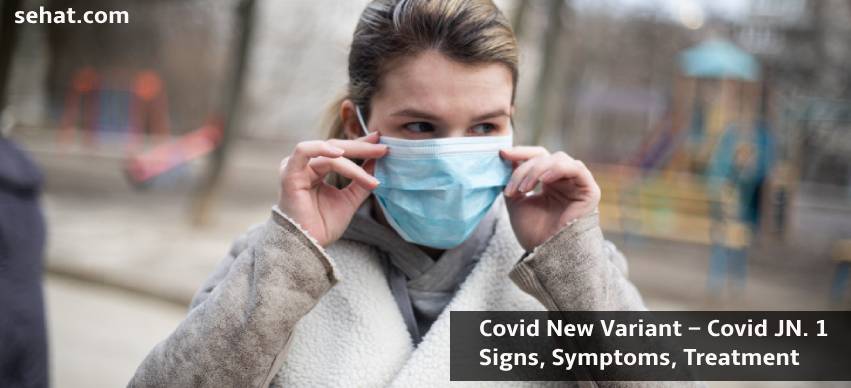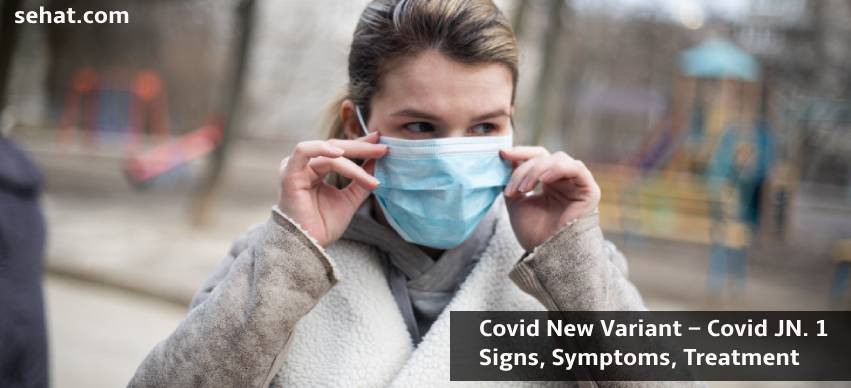Nanoparticle Therapy – An Emerging Cancer Treatment
5 Min Read


Since December 2019, the whole world is talking about only one thing and that is Covid 19. This is a zoonotic virus believed to have originated from Bats. It created havock in the entire world in 2020 and 2021. No country, no family in the world was spared by this deadly virus.
But for the last 2 years, the coronavirus has been silent. It changes through antigenic shift and drift. In the last two years, many variants of Covid 19 virus have been identified. But this Covid JN. 1 variant is catching a lot of attention worldwide because of its rapid spread, severe symptoms and death scare. This new variant is derived from Omicron Variant which is BA. 2.86. Due to mutations in spike protein new variant JN. 1 is derived. It is said to spread faster as compared to its precedence.
Origin –
There is no clear-cut origin country. But it is isolated simultaneously from many countries like the USA, UK, Spain, Portugal, Iceland, Nederland and China.
In India, this variant is isolated first in Kerala State. The first Indian documented case of JN. 1 variant was 79-year-old lady from Kerala who showed mild influenza kind of symptoms. This lady was tested by the State Covid Surveillance Team and found to be the first diagnosed case of JN. 1 variant in India.
Spread –
Like Covid 19 virus, this variant can spread by droplets. So when an infected person coughs, sneezes or talk, this virus comes in the environment through droplets.
Symptoms –
Commonly observed symptoms from this variant are like of Upper respiratory tract infection (URTI). So common symptoms are fever which is usually high grade, dry cough, sneezing, runny nose, sore throat, weakness, bodyache, malaise, fatigue, Tiredness etc.
Other uncommon symptoms are gastrointestinal symptoms like diarrhea, loss of appetite and loss of taste. Patients with obesity, diabetes Mellitus or type 1 diabetes, pregnancy, kidney and liver disease may show symptoms of severe infection like cough with expectoration, breathlessness, hypotension, hypoxia (low oxygen saturation), altered sensorium, coma etc.
Diagnosis –
By RT PCR test.
Treatment –
For mild cases – Upper respiratory tract infection (URTI) symptoms.
Home isolation for 7 – 10 days. Drink plenty of fluids orally and keep yourself hydrated. Avoid oily and spicy food. Avoid junk food. Avoid cold stuff like ice cream, cold drinks and soda. Take paracetamol for fever. Take antihistamine drug like levocetrizine or fexofenadine for cough and runny nose. Patients can take cough syrup containing chlorpheniramine plus dextromethorphan. Multivitamin tablets containing zinc is also useful for faster recovery.
During entire stay of home isolation, patients are advised to observe Temperature, oxygen saturation and respiratory rate. Routine reports like CBC, CRP, SGPT, Creatinine and chest x ray PA view or HRCT Thorax are advised.
Usual recovery duration is 5-7 days. Signs of recovery – Subjective feeling of wellbeing, No fever, no cough and runny nose. Usually patient becomes non contagious after 7 days. So home isolation is needed for first 7 days.
For moderate to severe cases -
Patients with persistent high-grade fever, breathlessness, hypoxia (low oxygen saturation), pneumonia on chest x ray and hypotension falls under moderate to severe cases. These patients need hospital admission. They may require ICU (intensive care unit) admission for Ventilatory support, oxygen support, inotropic support, anti viral drugs, antibiotics and other supportive treatment.
Luckily, this new variant is not that virulent. The death rate is very low.
Complications –
Moderate to severe infection can damage lungs permanently and may cause Post Covid lung Fibrosis, bronchitis, and bronchiectesis. These kinds of patients are more prone to recurrent respiratory tract infections.
Prevention –
Luckily, all our available vaccines are effective against spike protein. So ultimately all vaccines are effective against this new variant. So individuals with full vaccination will be protected and less likely to end up in moderate to severe disease.
Like any other disease, for Covid also ‘Prevention is Better than Cure‘.
So take all aseptic precautions. Wear a mask all the time when outside the home. Isolate yourself if you develop URTI symptoms. Sanitize your hands frequently. Avoid touching your face, especially nose unnecessarily. Eat healthy food and maintain good immunity. Avoid unnecessary hospital visits. Avoid visiting crowded places, public gatherings etc. The government of India advised people to avoid Christmas and New Year gatherings in view of this new variant.